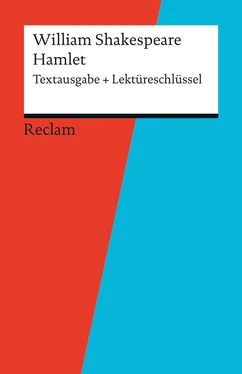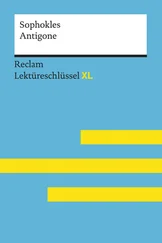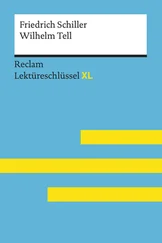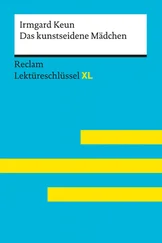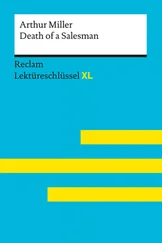If she unmask her beauty to the moon 32.” 33
“Virtue itself ’ scapesnot calumniousstrokes.”
“The canker gallsthe infants of the spring
Too oft before their buttonsbe disclosed,
And in the mornand liquiddew of youth
Contagious blastmentsare most imminent.”
Be warythen; best safety lies in fear,
Youth to itself rebels, though none else near.
[33] OPHELIA. . I shall the effectof this good lesson keep
As watchman to my heart. But, good my brother,
Do not, as some ungraciouspastors do,
Show me the steep and thorny way to heaven, 34
Whiles like a puffedand reckless libertine
Himselfthe primrosepath of dalliancetreads,
And recksnot his own rede.
LAERTES. O, fearme not …
I stay too long –
Enter Polonius
but here my father comes.
A double blessing is a double grace,
[Kneels]
Occasion smiles upon a second leave.
POLONIUS. Yet here, Laertes? aboard, aboard, for shame!
The wind sits in the shoulder of your sail,
And you are stayedfor. There …
[Laying his hand on Laertes’ head]
my blessing with thee,
[Laertes rises]
And these few preceptsin thy memory
Lookthou character: Give thy thoughts no tongue,
[34] Nor any unproportionedthought his act.
Be thou familiar, but by no means vulgar;
Those friends thou hast, and their adoption tried,
Grapplethem unto thy soul with hoopsof steel,
But do not dullthy palm with entertainment
Of each new-hatched, unfledged courage. Beware
Of entrance to a quarrel, but, being in,
Bear’t that th’ opposèdmay beware of thee.
Give every man thy ear, but few thy voice,
Take each man’s censure, but reserve thy judgement.
Costlythy habitas thy purse can buy,
But not expressed in fancy; rich, not gaudy,
For the appareloft proclaimsthe man,
And they in France of the best rank and station
Are of a most selectand generous chiefin that.
[35] Neither a borrower nor a lender be,
For loan oft loses both itself and friend,
And borrowing dulls the edgeof husbandry.
This above all, to thine own self be true,
And it must follow as the night the day
Thou canst not then be false to any man.
Farewell – my blessing seasonthis in thee.
LAERTES. Most humbly do I take my leave, my lord.
POLONIUS. The time investsyou, go, your servants tend.
LAERTES. Farewell, Ophelia, and remember well
What I have said to you.
OPHELIA. ’Tis in my memory locked,
And you yourself shall keep the key of it.
LAERTES. Farewell.
Exit.
POLONIUS. What is’t, Ophelia, he hath said to you?
OPHELIA. So please you, something touching the Lord Hamlet.
POLONIUS. Marry, well bethought:
’Tis told me he hath very oft of late
Given private time to you, and you yourself
Have of your audiencebeen most free and bounteous.
If it be so – as so ’ tis puton me,
And that in way of caution – I must tell you,
You do not understand yourself so clearly
[36] As it behovesmy daughter and your honour.
What is between you? Give me upthe truth.
OPHELIA. He hath, my lord, of late made many tenders
Of his affection to me.
POLONIUS. Affection, pooh! You speak like a greengirl,
Unsiftedin such perilous circumstance.
Do you believe his tenders, as you call them?
OPHELIA. I do not know, my lord, what I should think.
POLONIUS. Marry, I will teach you: think yourself a baby,
That you have ta’enthese tendersfor true pay,
Which are not sterling; tenderyourself more dearly,
Or (not to crackthe windof the poor phrase,
Runningit thus) you’ll tender me a fool.
OPHELIA. My lord, he hath importunedme with love
In honourable fashion.
POLONIUS. Ay, fashion you may call it, go to, go to …
OPHELIA. And hath given countenanceto his speech, my lord,
With almostall the holy vows of heaven.
[37] POLONIUS. Ay, springesto catch woodcocks. I do know
When the blood burns, how prodigalthe soul
Lends the tongue vows. These blazes, daughter,
Giving more light than heat, extinctin both,
Even in their promise, as it is a-making,
You must not take for fire. From this time
Be something scanterof your maiden presence,
Set your entreatmentsat a higher rate
Than a command to parle; 35for Lord Hamlet,
Believe somuch in him that he is young,
And with a larger tethermay he walk
Than may be given you. In few, Ophelia,
Do not believe his vows, for they are brokers
Not of that dyewhich their investmentsshow,
But mere imploratorsof unholy suits,
Breathinglike sanctifiedand pious bonds
[38] The better to beguile… This is for all,
I would not, in plain terms, from this time forth
Have you so slanderany moment leisure
As to give words or talk with the Lord Hamlet.
Look to’t, I charge you, come your ways.
OPHELIA. I shall obey, my lord.
Exeunt.
Scene 4
[The platform upon the fortifications.]
Enter Hamlet, Horatio, and Marcellus.
HAMLET. The air bites shrewdly, it is very cold.
HORATIO. It is a nippingand an eagerair.
HAMLET. What hour now?
HORATIO. I think it lacks of twelve.
MARCELLUS. No, it is struck.
HORATIO. Indeed? I heard it not … it then draws near the season,
Wherein the spirit held his wontto walk.
A flourish of trumpets, and ordnanceshot off.
What does this mean, my lord?
HAMLET. The King doth wake to-night and takes his rouse,
[39] Keeps wassail and the swagg’ring up-spring reels:
And, as he drainshis draughts of Rhenishdown,
The kettle-drumand trumpet thus brayout
The triumph of his pledge.
HORATIO. Is it a custom?
HAMLET. Ay, marry is’t,
But to my mind, though I am native here
And to the manner born, it is a custom
More honoured in the breachthan the observance.
This heavy-headed reveleast and west
Makes us traduced and taxed of other nations.
They clepeus drunkards, and with swinish phrase
Soil our addition, and indeed it takes
From our achievements, though performed at height,
The pithand marrowof our attribute.
So, oft it chancesin particular men,
That for some vicious mole of nature in them,
[40] Asin their birth, wherein they are not guilty
(Since nature cannot choose his 36origin),
By the o’ergrowthof some complexion,
Oft breaking down the palesand fortsof reason,
Or by some habit that too much o’er-leavens
The form of plausivemanners … that these men,
Carrying, I say, the stampof one defect,
Being nature’s liveryor fortune’s star,
Hisvirtues else be they as pure as grace,
As infinite as man may undergo,
Shall in the general censure take corruption
From that particular fault: the dramof evil
Doth all the noble substance often dout,
To his 37own scandal.
Enter Ghost.
HORATIO. Look, my lord, it comes!
HAMLET. Angels and ministersof grace, defendus!
Be thou a spirit of health, or goblindamned, 38
[41] Bring with thee airs from heaven or blastsfrom hell,
Be thy intents wicked or charitable,
Thou com’st in such a questionableshape
That I will speak to thee. I’ll call thee Hamlet,
King, father, royal Dane – O, answer me!
Let me not burst in ignorance, but tell
Why thy canonizedbones, hearsèdin death,
Have burst their cerements? Why the sepulchre
Wherein we saw thee quietly interred
Hath opedhis ponderousand marble jaws
To castthee up again? What may this mean
That thou, dead corse, again in complete steel
Читать дальше
